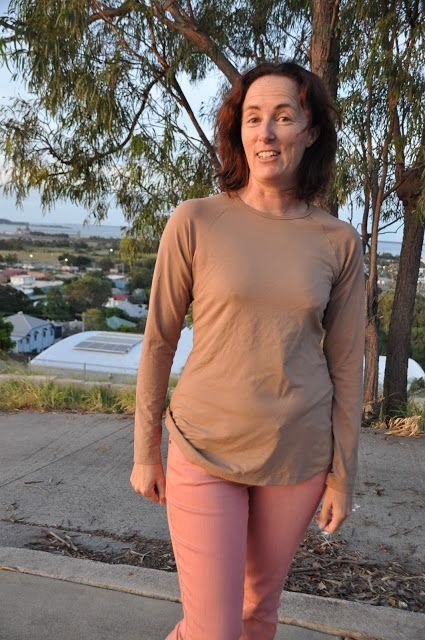How Free Boilers Help the UK Meet Net Zero Goals

The UK is working hard to reduce its carbon footprint. One major step in this journey is reaching net zero emissions by 2050. This means the amount of greenhouse gases the country puts into the air must equal the amount taken out. It’s a big task. But one small change in homes across the country is helping in a big way: free boiler grants.
A free boiler grant may sound too good to be true. But they are part of a smart plan. These new, energy-efficient boilers are being offered at no cost to certain households. The goal? To reduce energy waste, lower bills, and cut down carbon emissions.
Let’s explore how this simple upgrade is playing a key role in the UK’s green mission.
What is the Net Zero Goal?
Before we get into boilers, let’s understand net zero. The term refers to balancing the amount of greenhouse gas produced with the amount removed from the atmosphere. In simpler terms, if we emit 100 units of carbon, we must take 100 units out, or stop them from entering the air in the first place.
This goal is part of the UK’s Climate Change Act, which sets legal limits on how much carbon can be emitted. To meet these goals, the UK must change how it heats homes, drives cars, and powers industries.
Why Heating Homes Matters
One major source of carbon emissions is heating. In the UK, about 14% of all emissions come from home heating. That’s a big number. Most of these homes use gas boilers that are old and inefficient. These outdated systems burn more gas and release more carbon dioxide.
This is where free boilers come in.
What Are Free Boilers?
Free boilers are new, energy-efficient condensing boilers given to homeowners who qualify under government-backed programs. These programs are designed to help low-income households and reduce energy waste.
The free boiler programs are part of a bigger plan, known as the boiler replacement scheme. This scheme is a key step in cutting emissions and helping the UK reach its net zero goals.
How Boilers Work and Why Efficiency Matters
Boilers heat water and send it through pipes to radiators or taps. Older boilers, especially those over 10 years old, lose a lot of heat. This means more gas is burned to keep a home warm.
New condensing boilers are much better. They capture heat from waste gases that older models would release into the air. As a result, they use less fuel and emit less carbon.
Switching to a new boiler can reduce a household’s carbon emissions by 1.5 tonnes per year on average.
Who Qualifies for Free Boilers?
To get a free boiler, homeowners must meet certain rules. These vary by region and program, but usually, the person must:
- Own their home
- Receive specific government benefits (like Universal Credit or Pension Credit)
- Have an old or broken boiler
- Live in a property that is not energy efficient
In some cases, landlords can also get help for their tenants.
The boiler replacement scheme is one of the ways the government ensures that everyone, no matter their income, can be part of the green transition.
The ECO Scheme: Making Boilers Accessible
The main program offering free boilers is the ECO scheme, short for Energy Company Obligation. Under ECO, energy suppliers are required to help households reduce energy use.
ECO has several parts, but one key focus is on replacing old heating systems with new, efficient boilers. Since 2013, the ECO scheme has helped thousands of homes become more energy efficient.
The most recent version, ECO4, began in 2022 and will run until 2026. It places more focus on:
- Whole-house energy upgrades
- Lower-income families
- Long-term carbon savings
Under ECO4, replacing a boiler is often paired with better insulation and smart heating controls.
How Free Boilers Cut Carbon
So how exactly do free boilers help the UK meet net zero goals?
1. They Use Less Gas
New boilers are up to 90% efficient, compared to 60-70% for older models. That means less fuel is burned for the same amount of heat. Less gas use = fewer emissions.
2. They Reduce Energy Waste
Modern boilers control heat better. They can adjust automatically and work with smart thermostats. This avoids overheating and keeps homes at a steady temperature.
3. They Encourage a Shift in Habits
When people see their new boiler working better, they often become more energy-conscious. They’re more likely to take steps like turning off lights or insulating their lofts.
4. They Help Tackle Fuel Poverty
Fuel poverty is when a household can’t afford to heat their home properly. Free boilers lower energy bills, making homes warmer and healthier. This aligns with both climate and social goals.
The Boiler Replacement Scheme and Net Zero
The boiler replacement scheme is not just about handing out new equipment. It’s about creating lasting change. Here’s how this scheme is connected to the bigger climate strategy:
- Targets the Worst Performers: Homes with the worst Energy Performance Certificate (EPC) ratings are upgraded first. This brings fast improvements.
- Focuses on the Long Term: Each boiler replaced reduces emissions not just once, but every year for the next 10-15 years.
- Supports Green Jobs: The scheme creates work for engineers, inspectors, and manufacturers—all in the green energy sector.
- Bridges the Gap to Heat Pumps: While heat pumps are the future, they are still costly and not suitable for every home yet. Free boilers offer a bridge solution that can cut emissions today while we prepare for a fully electric future.
Public Support and Awareness
Most people don’t think about their boiler until it breaks. That’s why awareness is so important. Government campaigns, energy suppliers, and even local councils are working to spread the word about free boiler upgrades.
Better awareness means more people apply, more emissions are saved, and the UK moves closer to its climate goals.
Challenges to Overcome
Of course, there are hurdles.
Limited Funding
While the ECO scheme is effective, it only has so much money. Many households who could benefit don’t qualify or don’t get help in time.
Old Housing Stock
The UK has many older homes, which can be hard to insulate or modernize. In some cases, a new boiler alone won’t make a big difference unless paired with other upgrades.
Awareness Gaps
Many people still don’t know about the boiler replacement scheme or think they don’t qualify. Outreach needs to improve.
Heat Pump Transition
Free boilers are a step forward, but they still rely on fossil fuels. Eventually, the UK must shift to heat pumps, solar heating, and hydrogen-ready systems.
Success Stories
Across the UK, free boilers are already making a difference.
In Wales, a retired couple saved over £300 per year in heating costs after getting a new boiler under the ECO scheme. They also noticed their home stayed warmer for longer.
In Scotland, a single mother of two received a free boiler and wall insulation. Her energy rating went from E to C, and her carbon footprint dropped significantly.
In Northern England, a community project replaced 500 boilers and reported over 750 tonnes of carbon saved in just one year.
These are not just numbers. They are real stories of cleaner air, lower bills, and a step closer to a greener country.
The Future of Home Heating in the UK
Free boilers are only part of the solution. But they are a smart, immediate step. In the coming years, the UK will need to:
- Phase out gas boilers altogether
- Invest in renewable heating systems
- Upgrade homes with better insulation
- Educate the public about energy use
But for now, replacing an old boiler with an efficient one is one of the easiest and fastest ways to cut carbon at the household level.
Final Thoughts
The journey to net zero isn’t about one big change. It’s about millions of small changes, made by everyday people, in everyday homes. Free boilers may seem like a small thing, but they are a powerful tool in the fight against climate change.
By using programs like the boiler replacement scheme, the UK is helping people save money, stay warm, and protect the planet. It’s a win for homeowners, a win for the government, and a win for future generations.
If your home has an old boiler, or if you know someone who may qualify, check out the latest updates on free boiler programs in your area. The time to act is now.
A warmer home today can mean a cooler planet tomorrow.



















